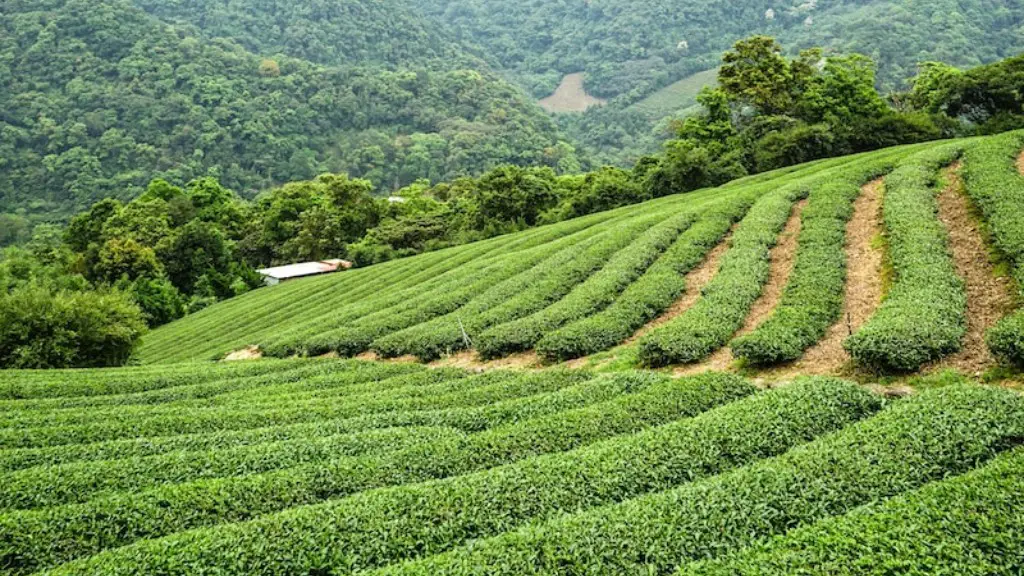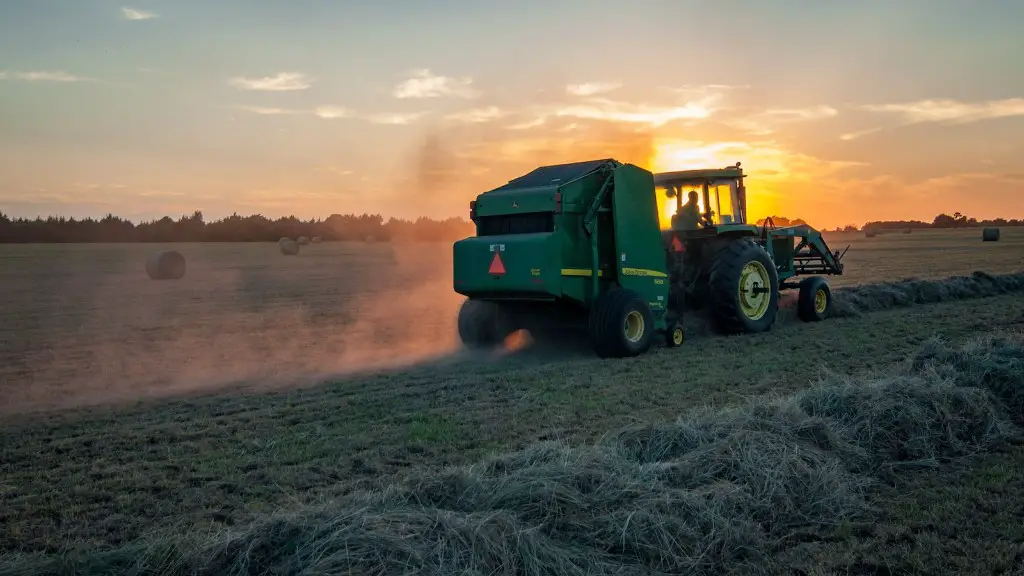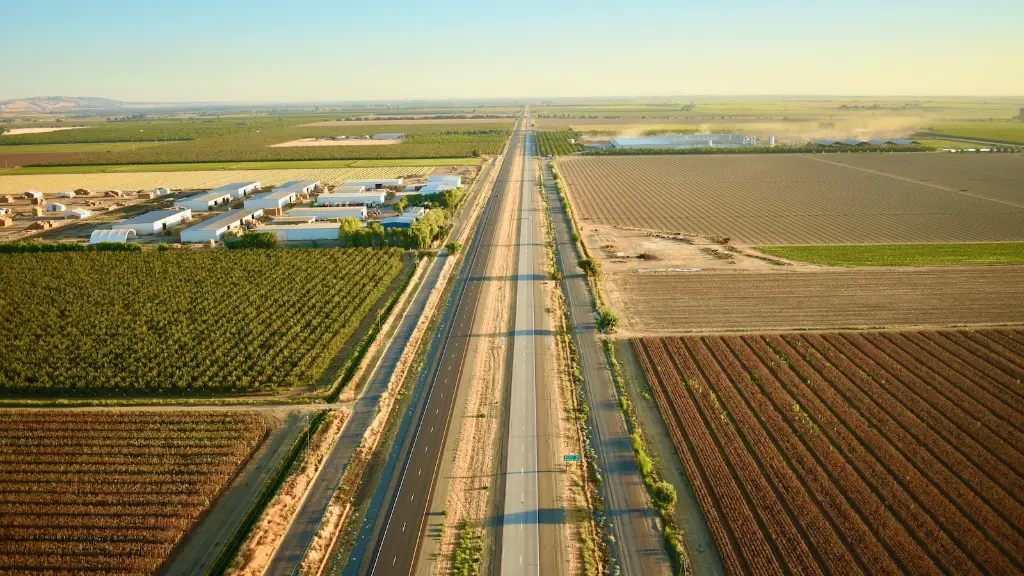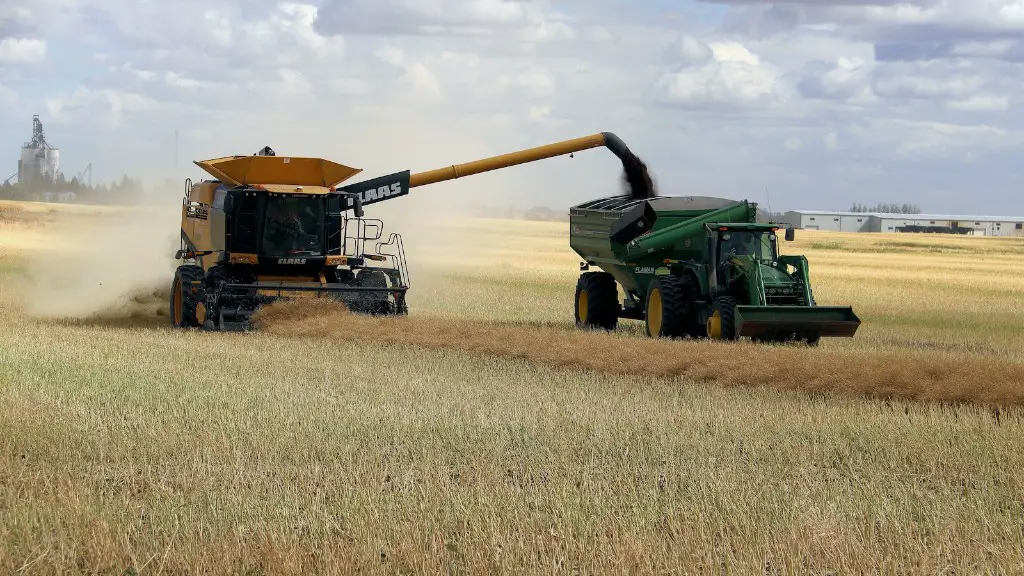Agriculture services are defined as the production, processing, marketing, supply, and distribution of agricultural products and services. They include activities such as crop and animal husbandry, agricultural processing, marketing, trade and distribution, and food services. Agriculture services encompasses different stages in the value chain of agribusiness, from agricultural production through packaging, marketing, and processing. This includes activities such as research and development, technological advancements, crop management, agricultural operations, and agro-processing. Agriculture services also includes engineering and maintenance, transportation, financial and regulatory services, and agricultural technology services.
Agriculture services are expected to provide a vast array of products and services as well as value-added support to the agricultural sector. Agricultural services may include crop scouting, soil testing, crop protection, herd management, nutrition monitoring, livestock records, pest and disease control, fertilization and irrigation practices, agroforestry, and storage and handling. It can also include services such as market research, marketing, financial, and legal services. Agriculture services may also offer educational programs to both producers and consumers.
Agriculture services play an essential role in providing food security and rural development. They create opportunities for employment and income generation. By providing technical support, marketing advice and financial assistance, small-scale farmers can significantly improve their productivity and incomes. Moreover, they provide access to improved technologies, better inputs, increased production, post-harvest processing, storage, and marketing.
The international market for agriculture services is highly competitive. Countries strive to provide the best agricultural services in terms of quality and cost. Investment in infrastructure, research and development, and expansion of capabilities is a key factor for the success of agricultural services. Governments also play an important role in supporting the sector through policies and regulation. In addition, there is a growing emphasis on sustainability and the use of green technologies and practices.
Agricultural services are a critical part of the value chain in agribusiness. They provide farmers, processors, and marketers with access to the necessary information and services to help them maximize their profits and reduce risk. With the right information and support, small and large-scale producers can optimize their production and increase their profits.
Impact of Agriculture Services
Agriculture services have been instrumental in changing and driving the global agricultural sector. They have played a vital role in improving access to resources, technologies and information, enabling farmers to produce food more productively, thus contributing to global food security and poverty reduction. Without the support of agriculture services, many small-scale and subsistence farmers would not have access to the resources and technologies required for successful agricultural production.
Agriculture services have also enabled greater integration of farm operations in international markets, particularly in developed countries. This integration has allowed farmers in developing countries to access greater variety of inputs and technology, improved marketing and traceability systems, and higher quality products. This has given agricultural producers greater access to markets, economies of scale and economies of scope.
Agriculture services play a significant role in reducing food losses and waste, improving processing and product quality, increasing crop yields and incomes, and increasing the efficiency and value of production. This has a direct and long-term impact on food and nutrition security, agricultural sustainability, and poverty reduction. Moreover, agricultural services contribute to economic growth and employment generation in rural areas.
Advantages of Agriculture Services
Agriculture services are beneficial for both small-scale and large-scale farmers. Small-scale farmers benefit from access to technical expertise and resources, as well as improved production and processing techniques. Large-scale farmers gain from better market access, technological advances, improved efficiency and greater integration into the global market. Agriculture services provide access to the latest and most advanced technologies, enabling producers to become more competitive, productive and profitable.
Agriculture services also have a positive effect on the environment. By providing access to better inputs, natural resources are managed more efficiently, reducing losses and waste, increasing yield and protecting the environment. Moreover, agricultural services allow for the development of sustainable agricultural systems, giving farmers access to clean, renewable energy sources, and more efficient and sustainable production techniques.
Agriculture services enable producers to spread their risks, lower input costs, and increase their production and profits. Through the use of agricultural services, producers can access support in marketing and financial management, enabling them to reduce their exposure to market volatility and achieve greater production efficiency.
Agricultural services provide access to technology, information, and data. These enable producers to increase yields, reduce costs, and increase the quality of their products. They also provide access to experts and consultants, who can help producers make informed decisions about how to optimize their production.
Disadvantages of Agriculture Services
Agriculture services can suffer from high overhead costs, lack of access to resources, and limited access to technology and expertise. Small-scale farmers often lack the resources to take advantage of modern agricultural services, while large-scale producers may not be able to afford the cost of specialized farming services. Additionally, some farmers may be deterred by the cost of technical expertise and other services.
Agriculture services can also contribute to the displacement of small-scale farmers and increase inequalities in the agricultural sector. International competition, trade liberalization, and other external factors are seen as the primary cause of this displacement, but agricultural services can exacerbate this situation by promoting competition among farmers, reducing bargaining power of small-scale producers, and creating a barrier to local markets.
The quality of agricultural services can vary significantly across countries, regions, and even within a single country. This can lead to disparities in the quality of products produced, as well as a lack of access to effective soil management, pest control and other agricultural technologies. Additionally, the lack of access to timely and accurate information can limit the effectiveness of agriculture services.
Agriculture services can also be difficult to implement and maintain. Access to technology and specialized expertise are often limited, making it difficult for farmers to take advantage of modern agriculture services. Furthermore, the certification process associated with certain services can also be time-consuming and expensive.
Conclusion
The use of agriculture services has become increasingly important in the global agricultural sector. It has provided farmers with access to the latest technology and information, enabling them to become more competitive, productive, and profitable. However, agriculture services can be expensive, require access to specialized expertise, and can lead to displacement of small-scale farmers and inequality in the sector. Therefore, it is essential to ensure that agriculture services are implemented and maintained in a way that is fair and equitable for all producers.




